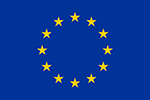
Romanian Border Police, ROMANIA
Coast Guard, territorial structure of the Romanian Border Police, has as main task the ensurance of maritime border surveillance and performance of border control and land border, as well as at the Danube river, in order to prevent and fight against illegal migration and other cross-border crimes. Regarding the border checks they are performed at all types of border crossing points: land, maritime and river.
The area of responsibility of the Coast Guard comprises 241,5 km of maritime border, 181 km of land border (with Ukraine on the Danube river) and 139,3 km of land border (with Bulgaria). Romanian territorial waters and exclusive economic zone amount to 29.819 km, which is less than 12% of the Romanian territory (238.397 km).
Also, being one of the main institutions responsible with ensuring the interests of the Romanian State, in the maritime area, it has specific attributions, in full compliance with the Coast Guard functions, promoted by the European Coast Guard Functions Forum, as: maritime border, maritime monitoring and surveillance, the prevention and suppression of trafficking and smuggling and connected maritime law enforcement, he maritime security. It also provides support to the Romanian national authorities in domains like” search and rescue, the protection and preservation of the natural fishery resources. By preventing and combating the illegal fishing and the illegal exploitations of other biological and non-biological resources and maritime accident and disaster response.
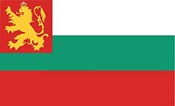
Bulgarian Navy, BULGARIA
Bulgarian Navy protects the sovereignty and the territory of the Republic of Bulgaria in her maritime spaces. Organizationally, the Navy consists of Navy Training and Preparation Headquarters; two military naval bases – Varna and Bourgas, and units for combat support and combat provision. Functionally, the Navy is divided into Deployment Forces and Territorial Forces:
- Deployment forces – formations with a high and low degree of readiness, capable of conducting the whole spectrum of NATO missions on the territory of the Alliance or outside it in the sense of Article 5 of the Washington Treaty, or in response to crises of a military or non-military nature. The Deployment Forces of the Navy are fully manned and equipped with the necessary arms and equipment.
- Territorial Forces – formations with a high and low degree of readiness capable of fulfilling operations related to the protection of the territorial integrity (independently and/or in the system of collective security and defence), the maritime sovereignty of the country with integrated systems in NATO’s shared system that guarantee contribution to the national security in peacetime and counteraction against potential asymmetric threats.
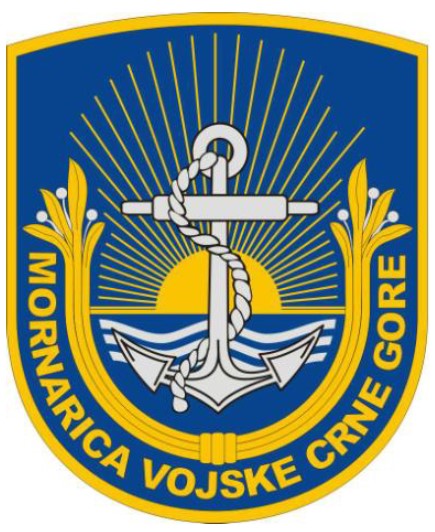
Montenegro Navy, MONTENEGRO
Montenegrin Navy is the naval branch of the military of Montenegro. The main purposes of the Montenegrin Navy are the following:
- Deterring the armed threat to Montenegro:
• Preparations for the defense (training, exercising and maintaining a high level of combat readiness)
• Defense Cooperation. - Defense of the territorial waters:
• Protection of the sovereignty of the waters and air space above it.
• Defending against unconventional threats against the armed forces. - Support to allied forces that are engaged in the defense of Montenegro.

Montenegro Border Police, MONTENEGRO
National Coordination Center – NCC Podgorica, performs activities of electronic surveillance of state border along whole administrative border of Montenegro, including all border crossings. More specifically, these activities are mostly related to:
- Multisensory surveillance of land and maritime border,
- Sensor detection, identification and classification of safety issues related to suspicious events and objects both on land and maritime borders,
- Deployment of unmanned crafts, radars, thermal and CCTV cameras, SMARTDEC and other mobile sets for situation monitoring and border surveillance purposes,
- Protection of life and property of civilians,
- Detection and prevention of illegal migrations and other types of unlawful border crossing,
- Prevention of all kinds criminal activities in border crossing and transport,
- Reporting on accidental situations related to border safety and data sharing for the purposes of cooperation with EUROSUR, FRONTEX, and other safety and security agencies.
- Detecting and preventing the commission of criminal offenses and misdemeanors and finding, arresting and imprisoning their perpetrators;
- Detecting and preventing illegal immigrations
- Preventing illegal traffic of goods across the state border and all forms of cross-border crime;
- Detecting and preventing criminal offenses, misdemeanors and finding and apprehending their perpetrators on the land, coastal and territorial waters of Montenegro; detecting and preventing the introduction of armed groups and individuals across the state border;
- Gathering and reporting information about situation on boarder, boarder cross and in the depth of the territory;
- Cooperation and exchange of information relevant to combating and preventing all forms of cross-border crime;
- Eliminating and preventing other activities and actions that endanger public security;
- Joint work and implementation of activities with other organizational units of the Sector of Boarder Police and the Police Directorate;
- Planning of the use of technical means for the observation, surveillance and control of crossing the state;
- Initiating and participating in the implementation of the planning, and development of the Green and Blue Border Electronic Monitoring System and the Border Crossing;
- Keeping prescribed records and performing other tasks within the scope of work of the Unit;
- Multi-sensory observation of land borders, Border Crossing zones and zone of the waters;
- Classifications of security events and facilities
- Identification of security-interesting events and facilities;
- Issuing the necessary orders;
- Sensor detection of the security events and objects of interest;
- Monitoring, directing and controlling the work of the security authorities in the waters and territory and Boarder Crossing;
- Cooperation and exchange of information with all relevant entities – security system bodies Border Crossing
- Planning and control of the use of observation and technical means for monitoring and controlling the crossing of the state border;
- Monitoring and coordinating the work of Joint Police Cooperation Centers in Trebinje and Plav;
- Monitoring and coordination of the work of Regional Communication Centers – RCC North, RCC Center and RCC South;
- Operational cooperation at national level with EUROSUR and FRONTEX and all NCC centers in EU MS.
- Access to EU classified information;
- Drafting and updating the National Situation Image;
- Receiving reports from RCC North, RCC Center and RCC South;
- Preparation of reports on all incidents in the field of border security and the delivery of the same to EUROSUR system, FRONTEX and other security agencies;
- Coordinating work and providing the necessary support for regional joint actions -JOA;
- Making risk analysis;
- Preparation of analytical reports;
- Proposing the improvement of Operational Procedures and the Border Security System, implementation of all other activities in accordance with EU regulations in the field of EUROSUR, FRONTEX and Schengen Agreement.
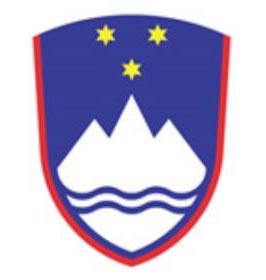
Slovenian Maritime Administration, SLOVENIA
Slovenian Maritime Administration performs administrative and expert tasks related to maritime transport and port infrastructure and maintains order in ports and in the rest of Slovenian territorial and internal sea waters. Moreover, it ensures safety of navigation, controls maritime transport operations and the maintenance of navigation safety facilities and waterways, and supervises the implementation of regulations governing maritime transport and port infrastructure and regulations governing inland waterway transport.

Albanian Maritime Administration, ALBANIA
General Maritime Directorate-Albania is a governmental institution that guarantees sovereignty and sovereign rights of the Albanian state in the maritime space through an integrated management of national sources of their institutions that are responsible and have sea interests.
General Maritime Directorate of Albania has the following obligations and rights:
- Directs and coordinates the activity of the constituent structures of the maritime administration,
- Performs control over the performance of the work and performance of duties on all the constituent structures of the maritime administration,
- Control the application of the general, national and international rules of maritime law,
- Provides technical assistance in drafting and approximation of national maritime legislation with international legislation. It completes the national legal framework for the implementation of international agreements relating to the law of the sea and the maritime transport in which the Republic of Albania is a party,
- Represents the Republic of Albania on Maritime Affairs in the United Nations, the International Maritime Organisation (IMO), the International Labour Organisation (ILO) and other organisations where the Republic of Albania is a party,
- Cooperate with all other relevant institutions related to the operation of the maritime sector, such as the Coast Guard, Border Police structures, customs agencies, environmental agencies, the Hydrographic Service and associations pf private operators,
- Exchanges the necessary data for the discipline of maritime traffic, the increase of the security conditions of the navigation and the standards of the port security,
- Establishes expert groups for conducting investigations into marine incidents and accidents, ship fights, ship fires, land piracy, piracy, resolution of all marine issues provided in the Maritime Code of the Republic of Albania, and takes the necessary measures to prevent and avoid them,
- Provides technical assistance in drafting sub-legal acts and taking appropriate measures for the removal of solid, liquid and marine relics through the constituent structures of the maritime administration,
- Directs, organizes and controls training for the qualification of officers and seafarers of the Republic of Albania, of pilots, agents, port operators operating in the maritime field, for issuing the necessary relevant certificates in accordance with national legislation and international conventions, where the Republic of Albania is a party,
- Pursues and carries out the activities of the maritime transport, based on the government program, the National Transport Plan, master plans and the strategy of development of the maritime sector,
- Monitors the development of marine posts, based on studies, master plans, projects, in accordance with the National Transport Plan
General Maritime Directorate performs department functions concerning: the safety of navigation in the coastal seas of Albania, in relation to regulation and maintenance of sea waterways, establishment of facilities for safety of navigation on waterways and ensuring their proper functioning, performance of radio service activities on sea waterways for the needs of maritime transport, establishment of seaworthiness of ships and other navigational and floating vessels, as follows: performing technical supervision, issuance of ship certificates, performing technical expertise in case of distress, protection of sea against pollution from navigational and floating vessels’ registration of yachts into the Register of Yachts; implementation of international and European conventions, protocols and agreements within the set competence; cooperation with international organisations and authorized bodies of other countries within the Department’s scope of work. Taking administrative measures and administrative actions in relation to subjects of inspection; monitoring and execution of laws and other regulations; execution of offence and administrative procedure in accordance with the law; monitoring and studying the implementation of regulations and other measures and activities in relation to safety and security of navigation; preparing opinions about the implementation of regulations; analysis and proposal of adequate measures; providing professional assistance for the implementation of laws and other regulations in the field of maritime affairs; making required reports, information, programs etc. private and state entities registered, exercising their activity in the field of seamanship and are legally permitted by the ministry;
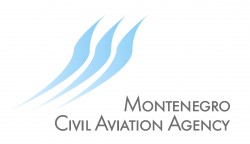
Montenegro Civil Aviation Agency, MONTENEGRO
The Civil Aviation Agency is an independent legal person, which performs public authority in accordance with Law on Air Traffic. The Government of Montenegro founded the Agency in 2009. The Agency’s headquarters is in Podgorica. The Agency is independent in performing the activities from its competence and responds to the Government for its work.
The competence of the Agency is determined by the Law on Air Traffic, which stipulates that the Agency:
Issues an air operator’s certificate and an operating license, issues a certificate on aircraft type, certificate of airworthiness, certificate of airworthiness check, certificate of registration, issues a certificate of compliance to the aircraft maintenance officer, issues a certificate of fulfilment of conditions to the legal entity for professional training of aviation personnel, issues a certificate and approval for the use of civil airport, issues permits and authorisations to civil aviation personnel, adopts general acts in accordance with this law and acts for implementation of CAA agreement (Multilateral Agreement between the European Community and its Member States and the Republic of Albania, Bosnia and Herzegovina, the Republic of Bulgaria, the Republic of Croatia, the former Yogoslav Republic of Macedonia, the Republic of Iceland, the Republic of Montenegro, the Kingdom of Norway, Romania, the Republic of Serbia and the Interim Mission United Nations Law in Kosovo) on the establishment of a European Common Aviation Area Agreement, international standards and recommended practices in the field of civil aviation, and in particular ICAO, ECEC, EASA and ECAO standards, procedures and recommended practices; EUROCONTROL, with the consent of the Ministry of Transport and Maritime Affairs, adopts acts ordering measures to establish the safety of the functional system in order to protect air safety, maintains registers and records in accordance with this las, inspects the implementation of this law and concluded international contracts, continuously monitors the fulfilment of conditions in accordance with the Law, cooperates with the bodies of other states responsible for civil aviation and to perform other tasks in accordance with this Law and the Stature of the Agency.
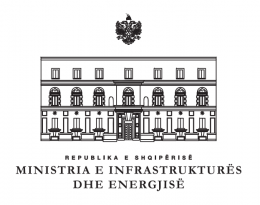
Department of Maritime Transport Policies at Ministry of Infrastructure and Energy, ALBANIA
The Ministry of Infrastructure and Energy has the mission of drafting and implementing the general state policy, in the sector of urban planning and development, in the sector of infrastructure and transport, in the telecommunications sector of the postal service, in the energy sector, exploitation of energy resources and mining in the industry sector.
Drafting of policies, implementation, and monitoring the activities of Maritime Transport and Maritime Ports in Republic of Albania;
Ratification of the international legal acts for adherence to international conventions;
Implementation of national, regional strategies, European and international cooperation.

Naval Hydrographic and Oceanographic Service – SHOM, FRANCE
SHOM is a Public Administrative Institution under the authority of the Ministry of Defense. Its mission is to understand and describe the physical marine environment in its relationship with the atmosphere, seabed and coastal areas, to forecast its evolution and to ensure the dissemination of the corresponding information.


